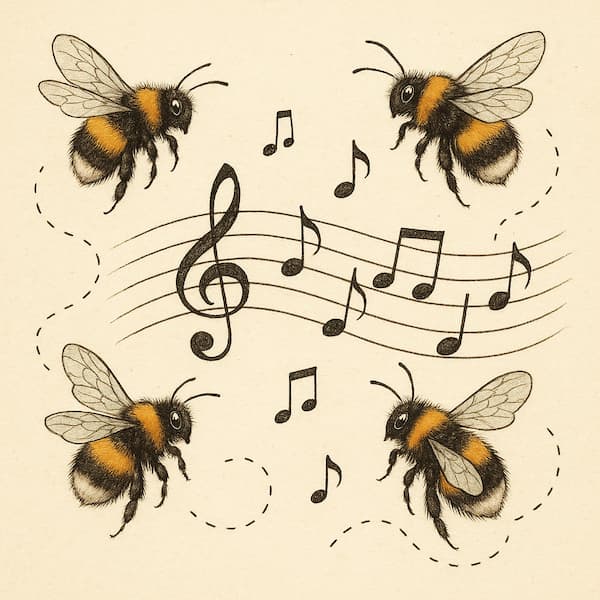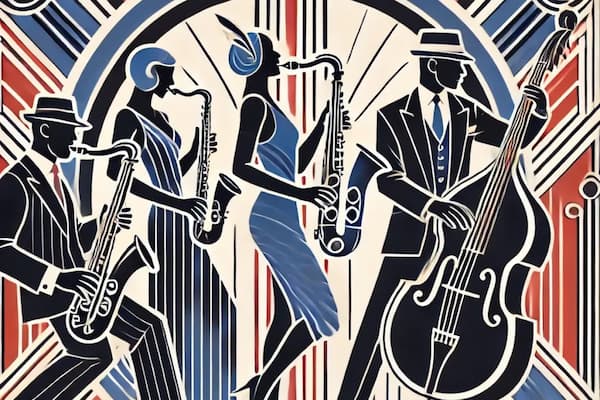As we welcome 2024, societal friendship and harmony are once again nowhere to be found. Hostilities, violence, intimidation, and wars are overrunning the planet on a virulent wave of entitlement and righteousness. In her poem “The Rock Cries out to Us Today,” Maya Angelou invokes natural imagery to explicitly denounce war and call for peace in the voice of a rock, an element that has existed long before humanity.

Each of you a bordered country,
Delicate and strangely made proud,
Yet thrusting perpetually under siege.
Your armed struggles for profit
Have left collars of waste upon
My shore, currents of debris upon my breast.
Yet, today I call you to my riverside,
If you will study war no more.
Come, clad in peace and I will sing the songs
The Creator gave to me when I
And the tree and stone were one.
Alexander Grechaninov: Mass, Op. 166 “Et in terra pax” (Gloria) (Anatoly Obraztsov, bass; Russian State Symphonic Cappella; Ludmilla Golub, organ; Russian State Symphony Orchestra; Valery Polyansky, cond.)

Deeply disturbed by the entry of his country into the Second World War, Alexander Grechaninov (1864-1956) composed his Mass “And Peace on Earth” in 1942. The composer drew on the traditional chants of the Russian Greek Orthodox Church and folklike harmonic progressions. The title of the work reflects Grechaninov’s hopes for the future, but it is not a preachy or dramatic composition.
Grechaninov never attempted to portray the terror and agonies of war but wrote contemplative music for the church that “blends the monotone of traditional chant with a gently expressive homophony and serene mastery of choral texture. The music is untouched by modernism and unfolds in a quiet and devout fashion, very much in the spirit of faith and acceptance.
Antonio Vivaldi: “Nulla in mundo pax sincera,” RV 630
Antonio Vivaldi (1678-1741), also known as the “Red Priest,” had a deep understanding of the frailty of human nature. In 1735, he musically set an anonymous Latin text titled “In this world there is no honest peace.” The text emphasises the imperfections of a world full of evil and sin and praises Jesus for salvation.
This sacred motet is scored for solo soprano, two violins, viola and basso continuo and consists of three parts: Aria, Recitative, Aria, and a concluding Alleluia.
Aria
In this world there is no honest peace
free from bitterness; pure and true
sweet Jesus, lies in Thee.
Amidst punishment and torment
lives the contented soul,
chaste love its only hope.
Recitative.
This world deceives the eye by surface charms,
but corroded hearts with hidden wounds.
Let us flee him who smiles, shun him who follows us,
for by skilfully displaying its pleasures, this world
overwhelms us by deceit.
Aria.
The serpent’s hiss conceals its venom,
as it uncoils itself
among blossoms and beauty.
But with a furtive touch of the lips,
a man maddened by love
will often kiss as if licking honey.
Alleluia
Frank Martin: “In Terra Pax” (Christine Buffle, soprano; Iris Vermillion, mezzo-soprano; Daniel Galvez Vallejo, tenor; Philippe Rouillon, baritone; Christophe Fel, bass; Bavarian Radio Chorus; Munich Radio Orchestra; Marcello Viotti, cond.)
The son of a Calvinist minister, Frank Martin (1890-1974) studied mathematics while taking private lessons with the composer Joseph Lauber. Martin was deeply influenced by the works of Johann Sebastian Bach, Claude Debussy, and Maurice Ravel and the serialism of Arnold Schoenberg. In time, Martin would accept a professorship at the Cologne College of Music and greatly influence European music in the period after World War II.
Martin had a profound belief in the Christian faith, a fact that is reflected in a series of sacred works. Most notable are his oratorios Golgotha (1948) and Pilate (1964), and In terra pax.
Composed in 1944 and premiered in 1945, “Peace on Earth” focuses on the themes of war and peace as problems of man’s social existence. Although the work is structured along the lines of a traditional oratorio, it does not follow a story. The work was intended to be performed by two choirs, one Catholic and the other Protestant. And wouldn’t you know it, the Catholic Church strongly protested this arrangement.
Andrzej Panufnik: A Procession for Peace (Polish Radio Symphony Orchestra, Warsaw; Łukasz Borowicz, cond.)

For the Polish composer and conductor Andrzej Panufnik (1914-1991), music is an expression of deep human feeling and true emotion. As he explained, “In all my works, I attempt to achieve a true balance between feeling and intellect, heart and brain, impulse and design.” A Procession for Peace was commissioned by the Greater London Council in 1983, and it is dedicated “to peace-loving people of every race and religion, of every political and philosophical creed.”
As 2024 is rapidly approaching, I am reminded of the immortal words of John Lennon, who takes us to a utopia without possessions or greed and a world without fighting promoted by nations and religions.
Imagine there’s no countries
It isn’t hard to do
Nothing to kill or die for
And no religion, too
Imagine all the people
Living life in peace
Utopia it might well be, but the thought of peace prompted Alexis Ffrench, born in 1970, to compose his peace miniature for solo piano. Combining his classical training with a love of roots music and R&B, he creates “beguiling music of gentleness and beauty.” We wish you a happy 2024 and “peace on earth to all persons of goodwill.”
For more of the best in classical music, sign up for our E-Newsletter
Alexis Ffrench: “Peace” (Alexis Ffrench, piano)



